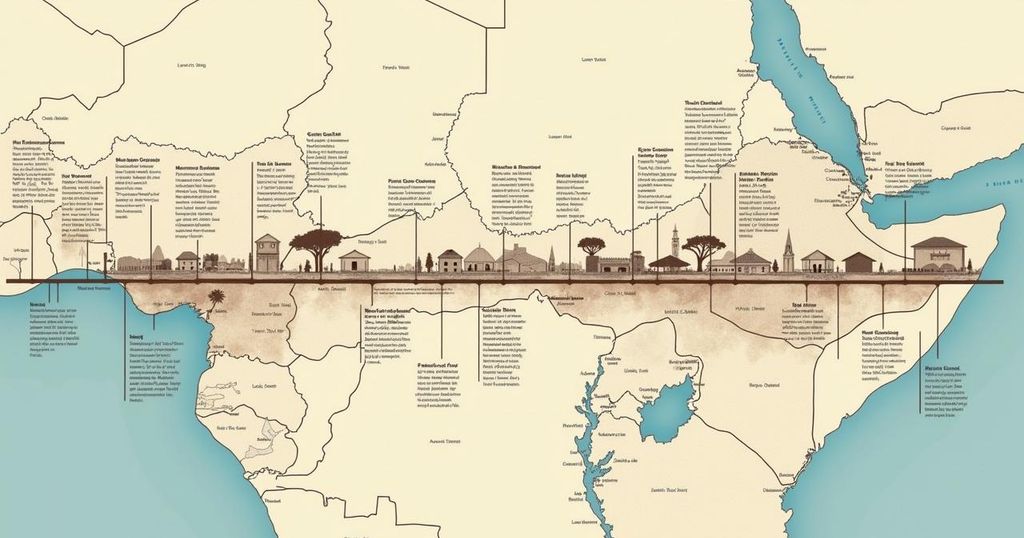This article examines Mozambique’s transition from Portuguese colonialism to independence, detailing the oppressive practices of the New State regime, the emergence of the Mozambique Liberation Front (Frelimo), and the challenges faced during post-independence governance, including civil conflict and economic hardship. The eventual peace agreement with Renamo marked a significant step towards democratic processes in the nation.
Mozambique’s historical trajectory transitioned from colonial rule to independence marked by revolutionary vigor and subsequent challenges. The Portuguese regime, established under the “New State” after the 1926 coup, entrenched economic exploitation, where colonial investments favored Portuguese settlers and left the indigenous population marginalized. Despite an ostensibly unified administrative and educational framework, these systems catered primarily to settlers, intensifying social disparities. In the 1950s, however, a shift occurred as Portugal initiated development plans intended to modernize Mozambique’s infrastructure. This prompted a surge of Portuguese settlers who capitalized on burgeoning economic opportunities, often to the detriment of local African communities. Such colonial policies spurred significant resentment among the African populace, catalyzing the formation of political leadership dedicated to opposing colonial rule. The Mozambique Liberation Front (Frelimo) was established in 1962 in Tanganyika by exiled Mozambican leaders, aiming to challenge Portuguese authority through armed conflict. This movement culminated in guerrilla warfare commencing in 1964, significantly undermining Portuguese forces. By the time of the Portuguese coup in April 1974, Frelimo had gained considerable ground within Mozambique, leading to the nation’s independence on June 25, 1975, under Frelimo’s control. As an independent nation, Mozambique became a single-party state, with initial support for broader African liberation movements shaping its foreign and domestic policies. Although Frelimo successfully dismantled several colonial-era policies, its governance faced critiques due to economic hardships, exacerbated by the civil war waged by the armed opposition group, Renamo. By the early 1990s, after considerable violence and societal strife, a peace agreement was reached, allowing for increased political plurality and the promise of reconstruction in the nation.
The article chronicles Mozambique’s struggle from colonial exploitation to independence and the ensuing efforts to establish a stable government. Portugal’s New State regime intensified colonial grip until post-World War II shifts prompted significant monetary investments. Despite these developments benefitting settlers more, they led to significant unrest, ultimately inspiring the formation of Frelimo, which sought liberation through armed resistance. The article highlights the complexities faced by Frelimo post-independence, including counterinsurgency, economic strategies, and international pressures, culminating in a peace accord that facilitated a step toward democracy.
In summary, Mozambique’s path to independence was fraught with struggles against colonial misrule and subsequent internal conflicts. Frelimo’s establishment marked a pivotal shift towards national self-determination; however, the period post-independence revealed significant challenges in governance, economic management, and political stability. The ultimate resolution between Frelimo and Renamo in the 1990s highlights the adaptability of Mozambique’s political landscape and the ongoing evolution of its national identity.
Original Source: www.britannica.com







